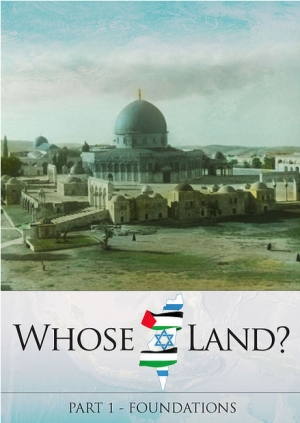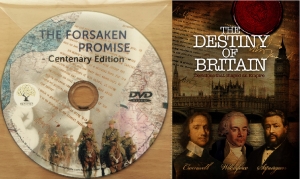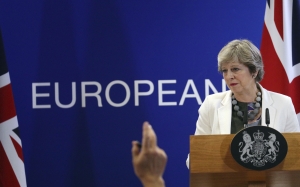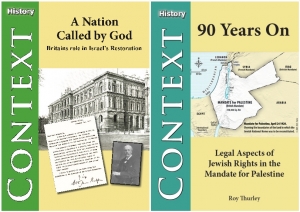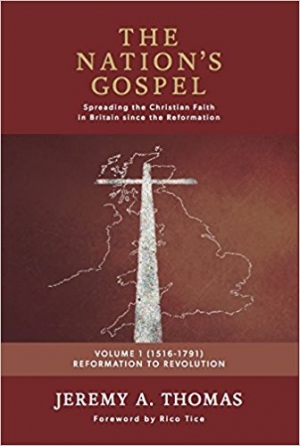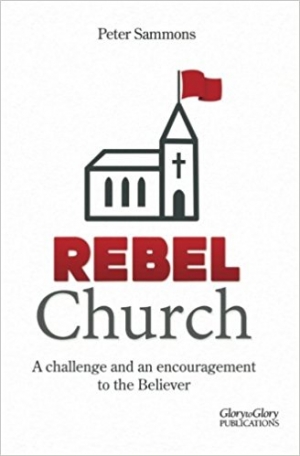General
Displaying items by tag: britain
Review: Whose Land? (DVD)
Paul Luckraft reviews ‘Whose Land? Pt 1: Foundations’ (DVD, Title Deed Media, 2017).
This is the first of a two-part documentary looking at the legitimacy of Israel under international law. A wide range of highly qualified historians and international lawyers provide much of the information while presenter Colonel Richard Kemp anchors the whole presentation in a clear and skilful manner.
The aim of the production is simple: to tell the truth. With so much misinformation being spread around, either through fake history or deliberate misrepresentation of the current legal situation, simply telling the truth is the best weapon to counter the propaganda war being waged against Israel today.
How Lies Become Truth
In the dramatic opening we are shown several examples from the Palestinian media, proclaiming their rights to the land and their desire to destroy the Jews, who are portrayed as evil occupiers and usurpers.
Most striking is the clear indoctrination of children as part of this cause. The tactic is that if a lie is repeated often enough it will be believed without question and become a standard part of the education of the next generation. This belief that the Jewish people have no right to the land and are illegal occupiers is not only widespread throughout the Muslim world but, more alarmingly, is also finding a foothold in the West.
So what is the truth? The documentary starts by countering the claim that the Jews were never in the land in the first place, and that there was no Jewish Temple in Jerusalem. This is easily done, as many sources confirm a Jewish presence in the land from antiquity.
Simply telling the truth is the best weapon to counter the propaganda war being waged against Israel today.
It then goes on to demonstrate that a Palestinian claim to any part of the land has no historical validity, and phrases such as ‘occupied Palestinian territory’ and ‘illegal occupation’ have no basis at all. They are all part of a bogus set-up. Verifiable history is the key to meeting such claims, and this is well-presented in sufficient detail without becoming bogged down or over-repetitive.
Charting Historical Progression
The 12 chapters vary in length from 3 to 13 minutes but it is possible to view it all in one sitting, as the film runs continuously through without annoying breaks for the chapter divisions (though it is well worth having the DVD case to hand to see the chapter titles).
The film takes us through the Ottoman Empire and its rule over Palestine, and then charts the historical progress from Turkish rule through to the Balfour Declaration. Some overlap would be expected with other DVDs and similar material on this topic - and inevitably there are some similarities - but there is much here that is new and more detailed. The whole emphasis is distinct: that of exploring the role of international law, hence chapters on the Paris peace conference, the League of Nations, the San Remo conference, and, of course, much on the British Mandate itself.
Special mention is made of the role of Churchill, which provides fascinating details into the political scene in Britain at that time. There is a chapter devoted to the 1939 White Paper and its tragic consequences, and another on the formation of the United Nations as it took over from the League of Nations, and the new charter that came into being as a result.
Britain’s betrayal of their Mandate responsibilities is documented clearly but always through the main lens of international law and how it should have been implemented.
The whole emphasis of this DVD is distinct: that of exploring the position of Israel within international law.
Being Clear About the Facts
The whole film is very informative, with new things to learn for everyone. It will also provide a vital revelation for those who rely on the usual media outlets.
We all need to be clear in our understanding of what is often a deliberately confused situation. With the 70th anniversary of the establishment of the State of Israel coming up next May we need to be prepared: to know what is binding in international law to this day and how to counter false views. This DVD is an excellent resource to that end and is highly commended.
The DVD also contains two previews, one of six minutes and another of ten minutes. It is not clear why two are necessary, but the longer one seems to contain things which will come up in Part 2 and so acts as a trailer for the whole. Included in the second DVD will be the wars against which Israel has had to defend itself since independence and the campaign to denounce and delegitimise the Jewish State. Part 2 (to be released in 2018) is eagerly awaited!
‘Whose Land? Part 1: Foundations’ (94 minutes, produced and directed by Hugh Kitson) is available from the publishers for £15 + P&P. Click here to visit the official website.
50 Years, 8,700,000 Lives
Why abortion matters.
“Jesus said, ‘Let the little children come to me, and do not hinder them, for the kingdom of heaven belongs to such as these.’" (Matthew 19:14)
Today is a sombre day, marking 50 years since the Abortion Act was passed, since which some 8.7 million children have lost their lives – around one fifth of all UK pregnancies.1 These silent millions, more than all the Jewish lives taken in the Holocaust, are being mourned and remembered this week.
On a recent trip to Banaias (Caesarea Philippi, where Peter declared Jesus to be the Messiah) in northern Israel, a huge cave at the foot of Mt Hermon that was a pagan worship centre at the time of Jesus, I was reminded vividly of how child sacrifice formed a central part of ancient idol worship. Infants would be thrown – alive – into the cave known locally as ‘the gates of hell’, to appease the gods. Indeed, child sacrifice has always played a part in satanic rituals.
Today, the black plastic bag full of babies that is taken out of the back door of NHS hospitals after a day’s abortions and thrown into the incinerator is our modern equivalent of the Temple of Pan at Caesarea Philippi where babies were thrown into the fire.
Infant sacrifice is just as prevalent today as it was in Jesus’ time. The very same demonic spirits are powerfully active today in our ‘modern’, ‘civilised’ society. They may cloak themselves in medical garb, or encouraging words like ‘choice’, ‘rights’ and ‘freedom’, but their insatiable lust for the blood of the young continues unabated, just as it has throughout history.
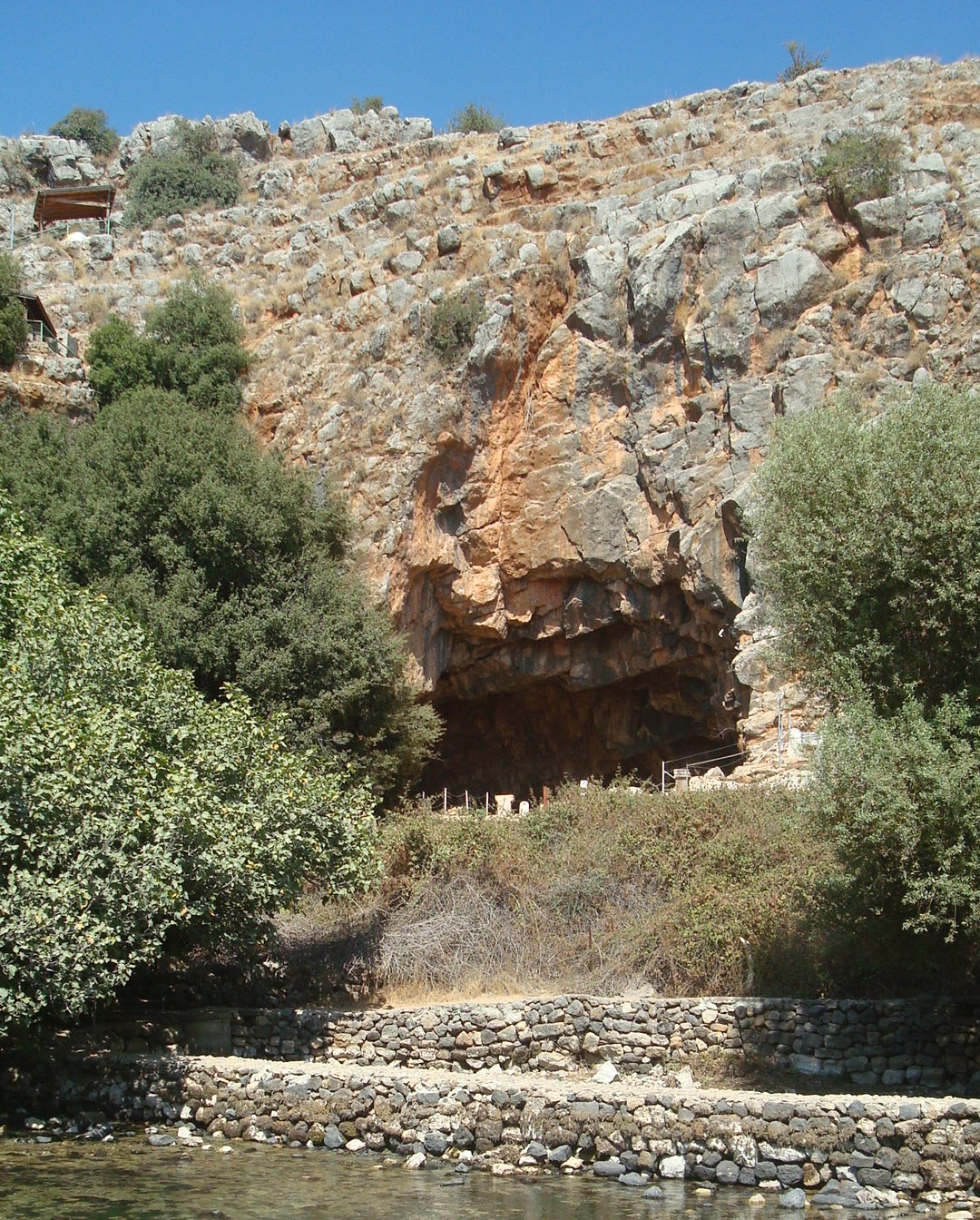
For Christians who recognise that our position on such issues must be built upon the sure foundation of God’s word, not on the shifting sands of human opinion, the last 50 years has not represented ‘progress’, but the tragic re-ascent of satanic hedonism - albeit in a more clinical garb, but no less barbaric in God’s eyes, and giving a strong demonic foothold in our society to spirits of death and destruction.
The Spiritual Significance of Abortion
For 50 years the battle has continued to rage over this divisive topic – and perhaps more fiercely now than ever before. Individuals such as disabled peer Lord Shinkwin2 and pro-life activist Aisling Hubert3 continue their fights for legal and cultural change. Today, pro-life group Abort67 (in conjunction with Christian Concern) is launching its ‘Moving Truth’ truck in central London, a mobile display bringing graphic images of abortion back into the public eye.
However, these brave Christians are standing as Davids against a Goliath opposition of abortion giants like BPAS and Marie Stopes, along with the British Medical Association and RCOG, which are together putting their weight behind abortion’s full decriminalisation.
Make no mistake; the decriminalisation of abortion is but the next stage in a much larger agenda, paving the way for the total legalisation of abortion, up to full term, for any reason. While recent statistics show clearly that there is no appetite for this among the general public4 – this is not stopping change for the worse being imposed from the top down, from powerful lobbies within the Government, key institutions and the media.
Just this week, the BBC has been criticised for airing a supposedly neutral documentary on abortion that was ‘brazen’ in its pro-abortion stance.5 It is one example of many - the majority of mainstream media outlets subscribe to the same liberal position, meaning that pro-life arguments are casually side-lined, talked down and misrepresented on a daily basis.
The truth is also being suppressed on the streets, where pro-life campaigns outside of abortion clinics are being ruled ‘intimidating’ and ‘harassing’ by local councils.6 Meanwhile, just over the sea, enormous pressure is being put on Northern Ireland to change its long-standing anti-abortion laws. And our Government insists on exporting abortion overseas to less wealthy countries, using international development aid as a vehicle.7
For concerned Christians, therefore, at this 50-year milestone there is much work to be done.
The last 50 years has not represented 'progress', but the tragic re-ascent of satanic hedonism, giving a strong demonic foothold in our society to spirits of death and destruction.
The Terrible Reality
Nobody is disputing that abortion is an extremely difficult and sensitive topic. But for biblical Christians, the God-given right of every child to live is indisputable.
The importance of an unborn child's life to God is shown explicitly in Exodus 21:22-23: "If men struggle and hurt a woman with child, so that she gives birth prematurely...if any harm follows, then you shall give life for life." Outside of confession, and repentance towards God and forgiveness in Jesus, blood guilt lies on all who have carelessly shed the blood of the unborn.
So, it is unsurprising that whilst hard-nosed cries for abortion-on-demand are foisted on an unthinking public, hundreds of thousands of women exist every day under the weight of overwhelming guilt and shame, having aborted a human life because they felt they had ‘no other choice’.
The Guardian boasts that 1 in 3 women will have an abortion at some time in their lives.8 The effect this has on women cannot be underestimated. But under the weight of such a burden, people have a choice: they can either harden their hearts towards God, finding ways to rationalise and excuse their actions, or they can come, broken-hearted and mourning, into the arms of a God who will grieve with them, heal them, bring good from their suffering and ultimately wipe away their tears.
The only people who can fully understand the spiritual and moral significance of abortion - and therefore those who God will perhaps hold most responsible for taking action - are Christians.
What You Can Do
The only people who can fully understand the spiritual and moral significance of abortion – and therefore those who God will perhaps hold most responsible for taking action - are Christians. And yet since 1967, the Church has remained largely silent on this issue.
Most believers remain tragically unaware of the importance of taking a stand for life! – morally and spiritually, before God and on behalf of the nation, but also on behalf of voiceless and defenceless unborn infants. The Church needs to be educated, as well as the public!
There are plenty of ways in which we can all do our bit.
1. Read up!
Help bring abortion into the light by making yourself and others aware of what it involves and its implications. As a start, we recommend material from the following:
- Society for the Protection of the Unborn Child (SPUC): click here.
- The Christian Institute: click here and here.
- Christian Concern: click here.
- Abort67: click here. N.B. This website contains graphic images which many people will find very difficult to view. However, the intention of Abort67 is not to offend needlessly, but simply to expose the reality of abortion, which is intrinsically offensive – because abortion ‘protests itself’.
- ‘Why Pro-Life? Caring for the Unborn and Their Mothers’ by Randy Alcorn (2004, repr. 2012, Hendrickson).
2. Take action!
Take a stand in the community and outside abortion centres:
- 40 Days for Life: a vigil of prayer, fasting and peaceful activism to spread awareness about the impacts of abortion in local communities.
- Helpers UK (Catholic): click here.
- March for Life.
Get involved in campaigning, education and public awareness:
- Society for the Protection of the Unborn Child (SPUC): click here (England and Wales) and here (Scotland).
- Abort67: click here.
- Right to Life: click here.
- Alliance of Pro-Life Students: click here.
- Northern Ireland: Precious Life, the Life Institute, Youth Defence
Leave an online tribute to the lost unborn with Voice for Justice.
3. Support financially and in prayer.
Most of the above groups welcome prayer and financial support. You can also give towards the work of Christian groups providing post-abortion counselling and healing, as well as alternative advice and support for pregnant women:
- Open: CARE's new initative to resource churches to support women through unwanted pregnancies and post-abortion/post-miscarriage concerns. Click here.
- Rachel’s Vineyard (healing retreats): click here.
- Revive Community (online and over the phone. Also provides training for those wanting to help friends or loved ones): click here.
- The Good Counsel Network (Catholic) (medical, practical and moral support during pregnancy): click here.
- Life Charity (support services for pregnant women, also campaigning and education): click here.
- Abortion Recovery Care and Helpline (ARCH): click here.
- The Choices Community: a new community being launched by Dr Mark Houghton, in conjunction with his new book 'Pregnancy and Abortion: Your Choice' (2017, Malcolm Down).
References
1 Abortion: facts and figures. The Guardian, 9 August 2006.
2 Lord Shinkwin has headed up a campaign for better legal protection for disabled babies, who are much more likely to be aborted, and can currently be aborted up to full term.
3 Aisling’s attempt to prosecute two doctors for illegally offering abortion on the grounds of gender made national headlines. Her case was overturned by the CPS as ‘not in the public interest’, but, she is now pursuing this to the European Court of Human Rights.
4 If anything, there is support for a reduction of the current limit of 24 weeks. See Poll: most Britons want abortion limit reduced to 20 weeks. Catholic Herald, 22 May 2017.
5 See this report from the Christian Institute.
6 Ealing Council’s vote to take action against pro-life group The Good Counsel Network could set a precedent. See here.
7 E.g. UK to spend over a BILLION pounds of aid money on family planning and overseas abortion. SPUC, 11 July 2017.
8 See note 1.
Reviews: Britain and Israel DVDs
Paul Luckraft reviews two DVDs ahead of the centenary of the Balfour Declaration this coming week.
The Forsaken Promise: Centenary Edition (Hatikvah Films, 2017)
To coincide with the centenary of the Balfour Declaration, Hatikvah Film Trust have issued a shorter version of The Forsaken Promise (originally 4 hours along across two discs, first published 2007). This is an excellent resource for those who have no or little knowledge of the aftermath of the Balfour Declaration, when Britain repeatedly reneged on its commitment to support a Jewish homeland in Palestine and failed to administer the region as the Mandate required.
The new disc can more readily be used in group discussions or even given away to those who want to discover how events played out in the vital period from 1917 to 1948, when the current state of Israel came into existence.
The DVD has eleven sections which means it can be used selectively if time does not permit a full showing, or paused at suitable moments to allow group discussion. The opening seven minutes set the scene well and would be a good way of opening up such a discussion. After that we start to see how things went wrong as Britain failed to live up to her promises. The presentation covers events from the San Remo meeting of 1920 to the British withdrawal in 1948, including the Hebron Massacre (1929), the White Paper of 1939 and the appalling incident of the Exodus ship (1947). Some of the scenes are quite disturbing and would need to be handled sensitively in a group context.
The DVD ends with an interview with Derek Prince in Israel, whose forthright words leave us in no doubt about the seriousness of Britain’s actions and attitudes during this vital period in our history and that of the Jews.
The Forsaken Promise: Centenary Edition (44 minutes) is available from AO Vision for £5. The original edition is still available from the publishers for £15.
The Destiny of Britain (Hatikvah Films, 2007)
Also available from Hatikvah is The Destiny of Britain, a prequel to The Forsaken Promise. This has not been reduced in length and remains in a two-disc format, with the main presentation (on Disc 1) being in two parts totalling 107 minutes. Disc 2 features several extended interviews with participants in the main presentation - a chance to hear at greater length what these experts had to say before it was edited down for Disc 1.
Presented by Kelvin Crombie, this is story of how Britain’s Christian heritage and her geo-political objectives in the Middle East combined in the period leading up the Balfour Declaration.
Britain played a key role in the restoration of the Jewish people to their biblical homeland and this DVD acts as a positive counterfoil to the more shameful episodes that followed the Declaration. Here we learn about how God placed many strong Christians in positions of influence in order to bring his purposes to fulfilment.
Knowing our history is central to understanding our present and likely future. This DVD provides key information to that end.
The Destiny of Britain: Decisions that Shaped an Empire (107 minutes) is available from Hatikvah Films for £10.
Confusion
Top-level turmoil is a biblical sign.
Day after day the news media is filled with reports of confusion in Whitehall, disagreements within the Cabinet and discontent among backbenchers.
Nobody is quite sure what’s going on and the general uncertainty at the top of the political spectrum is rapidly communicated, not only to the nation but also to leaders of the 27 other nations in the European Union with whom we are trying to negotiate an exit treaty.
The Bible tells us that ‘confusion’ is a direct consequence of turning away from God – rejecting his truth. Deuteronomy 28 lays out the great benefits and blessings that flow from being in a right relationship with God and keeping his commands to walk in his ways. It also sets out the consequences of rejecting the word of God.
Of course, these things were specifically written for the guidance of Israel, a nation in a covenant relationship with God. Nevertheless, the spiritual principle here is one that applies to nations such as Britain and the USA. They have publicly declared themselves to be nations that accept the Bible as the revealed word of God, which sets the standard for truth in the public square as well as in personal and corporate morality and ethics.
Having publicly recognised God’s truth, we have to bear the consequences of our rejection which are spelt out in Deuteronomy 28:20: “The Lord will send on you curses, confusion and rebuke in everything you put your hand to, until you are destroyed and come to sudden ruin because of the evil you have done in forsaking him.”
Departing from the Truth
The Prime Minister’s latest flying visit to Brussels will do nothing to rescue the Brexit negotiations with the EU unless there is public recognition of the way we have departed from the truth and despised the word of God.
However much we may have had sympathy for Theresa May in her ill-fated speech to the Conservative conference, it is hardly surprising that she choked on her words when in the same speech she declared that the greatest recent achievement of the Conservative Government was in changing the definition of marriage, defying the word of God and his created order.
Having publicly recognised God’s truth, we have to bear the consequences of rejecting it.
There is nothing more certain to bring judgment upon the nation than such an action. But God has not acted hastily. Successive governments in Britain have been conspiring to turn truth upside-down for many years. Despite Tony Blair’s personal acknowledgement of the importance of moral and spiritual values in society, the influence of secular humanist ideologies within the New Labour movement were strong.
Blairites and the Battle for the Family
 Jack Straw, see Photo Credits.Notably, the rising influence of LGBT interests were seen in the Blair Government, where powerful Cabinet posts were given to homosexual individuals such as Chris Smith,1 who took control of Culture, Media and Sport. This was exactly the area where LGBT values could be injected subtly into public life and was a notable triumph for the LGBT movement. Women in the Blair Government with strong feminist and secular humanist orientations, such as Clare Short and Harriet Harman, also opened the way for the promotion of ideologies harmful to the family.
Jack Straw, see Photo Credits.Notably, the rising influence of LGBT interests were seen in the Blair Government, where powerful Cabinet posts were given to homosexual individuals such as Chris Smith,1 who took control of Culture, Media and Sport. This was exactly the area where LGBT values could be injected subtly into public life and was a notable triumph for the LGBT movement. Women in the Blair Government with strong feminist and secular humanist orientations, such as Clare Short and Harriet Harman, also opened the way for the promotion of ideologies harmful to the family.
Disputes within the Cabinet reflected this ideological battle for the preservation or destruction of the family. Jack Straw’s endeavour to promote measures that would strengthen family life were thwarted within the Cabinet and resulted in his failure to produce the White Paper he promised in his speech on 15 July 1998, when he welcomed the publication of the report ‘Family Matters’.2
All this underlines the reason why Britain is in such dire straits today. Many Conservatives were amazed when David Cameron gave his support to ‘same-sex marriage’ (SSM) in 2013. But this was not his brainchild: he had been present at a meeting of European leaders in 2010 when it was agreed that all EU member states should aim to legalise SSM by 2013.
Cameron knew the pressure would be on and, as an ambitious politician, he simply wanted to be ahead of the game. But in so doing he brought judgment upon himself that ended his political career. When will Western leaders learn that you cannot defy the word of God without incurring inevitable consequences?
Successive governments in Britain have been conspiring to turn truth upside-down for many years.
Understanding Europe’s History
All the confusion surrounding Brexit is a measure of the extent to which we have put ourselves outside the protection and blessing of God and at the mercy of the destructive secular humanist spirits driving the European Union.
There is so much history wrapped up in these Brexit negotiations. Europe has been torn apart by two devastating wars in the past 100 years. Emotions run deep in the national psyche of each of the European nations. Germany has, twice, recovered remarkably from the devastation and destruction of military defeat. Their dream of a united Europe under German domination through the European Union had almost been achieved. But once again Britain is the one nation standing in the way.
Britain has always been the stumbling block – the odd one out – even driving on the other side of the road, not conforming to European standards - a nation of nonconformists! Today, the nations that suffered defeat or the humiliation of five years of enemy occupation (and of having Britain to thank for their liberation) suddenly find themselves in a position of power over Britain. Our Prime Minister has asked for their help in devising a deal that she can sell to her unruly Cabinet and a divided nation.
But mixed into all this are massive spiritual issues, as the whole of Europe has been assailed by a secular humanist onslaught in the past half-century. Britain has been more successful than any other European nation in holding on to its Christian heritage, largely through the influence of our ageing Queen, whose Coronation Oath to uphold the Protestant faith spread a cover of protection over the land.
Brexit is a sign of God’s mercy towards Britain, giving us the opportunity of re-asserting our sovereign independence under the blessing of God. But that can only be achieved through the recognition of how God has blessed us in the past, especially in the lifetime of our parents and grandparents. But we have deeply offended him in our own generation and, sadly, most people in Britain do not understand the nature of the battle and its spiritual dimension.
Bible-believing Christians who do understand the times have a vital role to play in the future of Britain if we are to be successful in getting out of Europe.
We Have Work to Do!
This is where Bible-believing Christians who do understand the times have a vital role to play in the future of Britain if we are to be successful in getting out of Europe. A few months ago, I was told in my times of intercession to stop praying general prayers of blessing and welfare upon the nation, but to engage instead in prayer with a particular focus.
Jeremiah was warned against praying “Peace! Peace!” when God was saying there was no peace (Jer 6:14). We have to learn to pray in line with God’s will. Then our prayers will be a powerful force to bring the nation in line with the purposes of God. That could still happen with the Brexit battle, in which our prayers should be specifically directed by the Holy Spirit. For that to happen, each of us has to learn to listen to the Lord.
References
1 Chris Smith was the first openly homosexual Politician to be appointed to a major Government office in British history.
2 Family Matters, a Report to the Home Secretary, The Rt Hon Jack Straw MP, from The Lords and Commons Family and Child Protection Group. Chairman: Lord Ashbourne, 15 July 1998.
Reviews: CFI Booklets on Israel's Restoration
We review two booklets from Christians for Israel (CFI), ahead of the Balfour centenary.
A Nation Called by God: Britain’s Role in Israel’s Restoration (2017, multiple authors)
This booklet is an extended version of a previous booklet, published by Love Never Fails, which in turn was an expanded version of a recorded message given by Ken Burnett. This final edited and expanded version includes extra material from Burnett’s original sources as well as from additional sources. The result is a more comprehensive picture of the relevant history leading up to the Balfour Declaration as well as more details of developments that occurred in the 20th Century.
The booklet is set out simply and starts by referring to a little-known work by Franz Kobbler entitled The Vision Was There (published in 1956). The theme is clear from the beginning that God chose Britain as a ‘servant nation’, appointed to shepherd Israel under God’s overall sovereignty of history.
There are sections on the usual people and groups that were instrumental in this cause: the Clapham Sect, Spurgeon, Ryle, CMJ. By the halfway point of the booklet we have reached the Balfour Declaration, described as the culmination of the British movement for the restoration of Israel.
God chose Britain as a ‘servant nation’, appointed to shepherd Israel under God’s overall sovereignty.
The booklet continues by commenting that “Sadly, through our scarred history since 1917, Britain has done far more to obstruct Israel’s restoration than to assist it” (p14). A list of 11 examples of this ‘opposite policy’ occupies three pages (pp18-20) and the booklet ends with what is perhaps its main intention: a call to repentance.
The final word is given to Derek Prince, an adapted transcript of an audio recording of a message he gave in Jerusalem on 1 June 2003, a few months before he died there in September 2003. At the end there is a page of references for further reading which brings this well-produced and timely book to a helpful conclusion.
A Nation Called By God (26 pages) is available from CFI for £2.50.
90 Years On: Legal Aspects of Jewish Rights in the Mandate for Palestine (Roy Thurley, 2010)
This is a short but well-produced and glossy booklet (with colour maps), produced from material presented at the 90th anniversary conference commemorating the San Remo Agreement. As for its message, it makes a very worthwhile contribution towards a better understanding of the aftermath of the Balfour Declaration and the subsequent British Mandate.
Of particular interest are the key points listed concerning the British Mandate for Palestine. For anyone who has not studied the legal aspect of this before, this will be a revelatory discovery.
The conclusion is that the Jewish State draws its legality from the San Remo Agreement of 1920, a fact that counters much of the misinformation spread in recent times, especially that which uses the United Nations Partition Plan of 1947 (Resolution 181) as its basis.
This is a worthwhile contribution towards a better understanding of the aftermath of the Balfour Declaration.
The only modification to the Mandate for Palestine was the creation of the Emirate of Trans-Jordan in 1946 (now Jordan). Thus the provisions of the Mandate to the land west of the Jordan remain applicable to this day. It soon becomes clear that the expression ‘illegally occupied territory’ is totally inapplicable to Israel’s presence in what has become known as the West Bank as well as other areas that were assigned to Israel under the 1920 San Remo agreement.
The booklet concludes that those who would deny Israel’s right to the territories it recaptured in 1967 should be challenged, and the fallacy of such claims should be countered by the legal case set out in its pages.
90 Years On (10 pages) is available from CFI for £2.50.
Review: The Nation's Gospel, Volume 1
Ian Farley reviews ‘The Nation's Gospel: Spreading the Christian Faith in Britain Since the Reformation: Volume 1’ by Jeremy Thomas (Wilberforce Publications, 2017).
The Nation's Gospel, according to the publishers, is “a living history, telling the stories of the Christian faith of past generations and its outworking in society”.1
There are two important points to note about this book: first, it is the opening volume of a four-volume series. Second, the author is a lawyer.
This volume covers 300 years (1516-1791 - from ‘Reformation to Revolution’), whereas Volume 2 covers 100 years (1791-1900) and Volumes 3 and 4 each cover only 50 years (1900-1945 and 1945-2015, respectively).
These are significant differences, especially considering Volume 1 deals with such enormous topics as the English Reformation, the Civil War era and the 18th Century revival. On each of these topics you could, of course, read multiple books. Inevitably this means the book is very brief on many issues - and yet remains quite dense, given its scope.
So, for those who know anything in reasonable detail about these 300 years, there will be little to learn, but for those readers who know less about Britain’s religious history (mainly England’s, but with small excursions into Scotland’s and Wales’), here is a one-volume whizz through the main points.
What Makes the Gospel Spread?
The subtitle of the book is ‘Spreading the Christian faith in Britain since the Reformation’. With this focus, Thomas goes beyond a simple description of what has happened in Britain’s Gospel history, to ask the intriguing question of what makes the Gospel spread successfully.
It is this that makes the book worthwhile (and hopefully will make the subsequent volumes worth perusing, especially the 20th Century ones).
Thomas asks the intriguing question of what makes the Gospel spread successfully.
In the vast scope of this first volume, Thomas focuses on just a few individuals at a little more length than others, as he explores this key question. He picks Catherine Parr (perhaps surprisingly) for the Reformation period, Richard Baxter for the Civil War, and George Whitefield for the 18th Century (with a special sub-section on Selina, Countess of Huntingdon).
He ultimately concludes that it is the doctrine of the Great Commission that matters most. In other words, in the midst of sermons, catechisms and good works, the Gospel spreads when simple personal faith in the substitutionary death of Jesus is proclaimed as the need of man (the main villain in Britain’s history, therefore, has been the teaching of baptismal re-generation, particularly by the Established Church. We presume that the next volume will have much to say about the Gorham controversy).
Legal Tone
Without resorting to a Dickensian Jarndyce and Jarndyce caricature, the fact remains that Jeremy Thomas has spent his life in legal matters, working as a corporate lawyer in the City.
As a result, his writing is laid out rather like a legal report. Every paragraph is numbered in bold type – 14.14, 14.15, 14.16 and so on – which makes the book rather staccato in style, with a lack of flow and continuity. For academics this might be helpful, and for some this will make the reading simpler and clearer – but for others it will be very dry.
Nevertheless, this remains a useful overview of a topic in which every British Christian should rightly take an interest and desire some sense of ownership – especially those who are concerned about the loss (and possible recovery) of this heritage today.
The Nation’s Gospel: Volume 1 (393 pages) is available here for £14.
References
1 Christian Concern News Release, 28 June 2017.
To an Unknown God
Diana's death was a merciful release for an undeserving nation.
Near my home there is a bridge on a bend of the road where a young man lost his life in an accident. Friends and relatives decorated the bridge with bunches of flowers in plastic covers which have remained for more than a year.
Little shrines like this are now to be seen throughout the land in towns as well as the countryside in what appears to be a new form of religion as Christianity declines in Britain.
With Bible-believing Christians becoming an endangered species, an agnostic population is developing its own religion. Grieving relatives who have little hope of seeing their loved ones in the life hereafter worship at these plastic altars to the dead, creating a kind of necropolis.
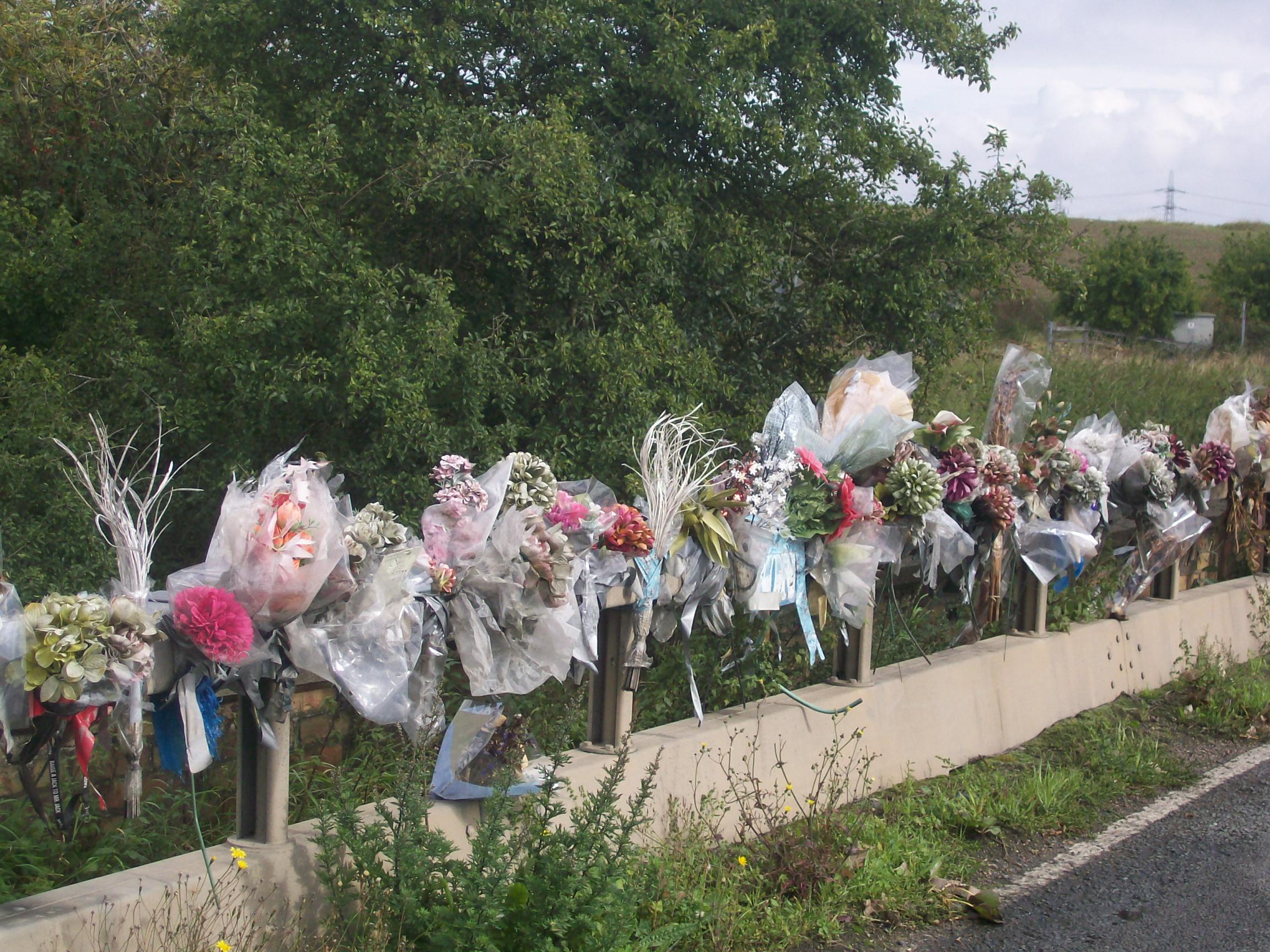 Flowers marking the spot of a fatal road accident. See Photo Credits.The Areopagus
Flowers marking the spot of a fatal road accident. See Photo Credits.The Areopagus
It reminds me of the Apostle Paul arriving in Athens and seeing the vast array of shrines to Greek gods. He began telling people about the resurrection of Jesus and some of the local philosophers who loved to debate new ideas invited him to address the Areopagus, an outcrop of rock known as the hill of Mars, which served as the seat of the ancient and venerable supreme court of Athens (Acts 17:19-34).
Paul saw the opportunity to tell them about Jesus but wisely began by referring to an altar he had seen dedicated ‘To an unknown god’. In their polytheistic society, the Greeks were keen not to offend any of the gods by missing one of them, hence this shrine which Paul used to begin his message. His objective was to introduce them to the true God of Creation.
Death of Diana
The plastic altars that are spreading across Britain are symbols of the ‘unknown god’ that have become widespread in the past 20 years since the death of Diana, Princess of Wales, when a vast mountain of flowers in plastic bags was built up outside Kensington Palace and Buckingham Palace.
With Bible-believing Christians becoming an endangered species, our agnostic population is developing its own religion.
The 20th anniversary of Diana’s tragic accident was recognised in August this year with more flowers in London and the two princes paying homage to their late mother.
The People’s Princess
The vast outpouring of grief 20 years ago was something never before witnessed in this nation and it took most people by surprise, including the Queen and our political leaders. Newly appointed Prime Minister Tony Blair described Diana as the ‘people’s princess’ which neatly encapsulated the public mood.
Diana was seen as a tragic figure – a beautiful woman deserted by her husband – millions of women in Britain could identify with her. Her TV interview about her divorce in which she had said that there were always three in her marriage touched a chord in millions of hearts. She was the lonely girl deserted by a heartless husband. In crying for her, millions were crying for themselves in socially acceptable grief.
An Orphan Spirit
Diana epitomised the ‘orphan spirit’ that is prevalent in Britain today as family life continues to crumble under the relentless attacks of those who wish to destroy the whole structure of our civilisation by attacking its Judeo-Christian foundations.
Her dispute with 'The Firm' – Prince Philip's nickname for the monarchy into which she had married - became the driving force in her life. She cleverly manipulated public opinion so that she was seen as the helpless victim of a cruel, all-powerful Establishment.
Diana epitomised the ‘orphan spirit’ that is prevalent in Britain today as family life continues to crumble.
Destroying the Monarchy
Her desire for revenge became far more than a personal dispute with her husband. It took on the character of a demonic force determined to destroy the monarchy, bringing chaos and confusion to the nation and tearing down all its major institutions that have held the United Kingdom together for centuries.
In taking as a lover the Muslim son of Mohamed Al Fayed, a man who hated Britain and who had acquired ownership of Harrods by disputed business dealings, Diana struck a blow, not only at the House of Windsor but at the Christian heritage of the nation.
If she had married him the consequences for the future of the nation were incalculable. This is why many people suspected that her death had been engineered by the Establishment to preserve the nation, but Christians saw it as the hand of God and his mercy towards an undeserving nation.
The plastic altar in The Mall in the heart of London at the funeral of the people’s princess represented the new religion of the British people – a nation grieving for its lost soul, deserted by the God of our fathers – now worshipping at the altar of ‘the unknown god’. Our condition is like that described by the faithful remnant of Israel after the destruction of Jerusalem who cried out to God for his forgiveness:
Our offences are many in your sight, and our sins testify against us. Our offences are ever with us, and we acknowledge our iniquities: rebellion and treachery against the Lord, turning our backs on our God, fomenting oppression and revolt, uttering lies our hearts have conceived. So justice is driven back, and righteousness stands at a distance; truth has stumbled on the streets, honesty cannot enter. Truth is nowhere to be found, and whoever shuns evil becomes a prey. (Isaiah 59:12-15)
Our nation is grieving for its lost soul.
Turning the Nation
Do we have to wait until ultimate tragedy and social disintegration strike Britain before we cry out to God for forgiveness, as the faithful remnant did after the destruction of Jerusalem? Those who understand the times and can see the destruction looming over Britain if the social anarchists continue their divisive and destructive ways must break their timid silence and proclaim truth into the nation!
The plastic altars to unknown gods will not save us! There is no other hope than confessing our sins before the Lord and asking him to heal our land. The loving promise of God is:
If at any time I announce that a nation or kingdom is to be uprooted, torn down and destroyed, and if that nation I warned repents of its evil, then I will relent and not inflict on it the disaster I had planned. (Jer 18:7-8)
Originally written for HEART of Sussex, October 2017 issue.
Britain's Red Lines
How to pray for a nation that has turned its back on God.
Today, 8 September, is being observed as a day of prayer by many Christians throughout Britain. Exactly 77 years ago, on 8 September 1940 (a Sunday), King George VI called the nation to a day of prayer.
It was intended to be a day of thanksgiving for what had become known as the ‘Miracle of Dunkirk’, when some 330,000 troops were evacuated safely with the help of an armada of little boats to get them off the beaches in France and back to England. But 8 September, as if by some prophetic foreknowledge, came at the height of the Battle of Britain, with thousands of enemy bombers darkening the skies of England.
The prayer day was perfectly timed and the Spitfires and Hurricanes of the RAF took a tremendous toll of the German air force. Then, for no rational reason, Hitler suddenly ordered the Luftwaffe to cease attacking RAF airfields. By 17 September 1940 the German Supreme Command issued an order saying that the invasion of England was postponed “until further notice”. The Battle of Britain was won and Winston Churchill addressed the nation with his iconic speech, declaring, “Never in the field of human conflict has so much been owed by so many to so few.”
Exactly 77 years ago today, the King called the nation to a day of prayer.
How to Pray?
I am on record as saying that I can no longer pray for the health and wellbeing of the United Kingdom. That does not mean that I do not pray for the nation - but I am careful how I pray. I need to pray in line with what I’m hearing from the Lord.
I cannot pray “peace, peace”, if the Lord is saying “There is no peace”! And I cannot pray for revival and blessing if I know the Lord is saying there will be no revival until there is repentance – at least repentance in the Church, if not repentance in the nation.
If there were repentance in the Church, there would undoubtedly be an outpouring of the Spirit of God. This could be the spark that ignites evangelism to the nation as a whole, with the potential of widespread revival. But that is unlikely, because there is so little understanding among Christians of the nature of the battle we are facing.
Political and Religious Red Lines
In Jeremiah’s day both the politicians and the religious leaders were in rebellion against God. They each crossed a red line and that was why Jeremiah was told to stop praying for the wellbeing of the nation and concentrate instead upon praying for those things that would lead to the fulfilment of God’s good purposes.
Jeremiah was appalled by the actions of the king and his political advisers when the envoys of all the nations surrounding Israel met in Jerusalem to hatch a plot to revolt against the Babylonian Empire (Jer 27). Zedekiah had sworn an oath in the Name of the God of Israel to be loyal to Nebuchadnezzar when he was appointed king, so Jeremiah saw this plot as dishonouring to God. He knew that it would lead to disaster for Jerusalem and the whole nation - it was a political red line.
Jeremiah knew that both politicians and religious leaders had crossed red lines – which was why he was told to stop praying for the nation’s wellbeing.
The religious red line was in the rejection by the priests of what’s known as Jeremiah’s ‘Temple Sermon’ (Jer 7), where he outlined the sins of Jerusalem and followed this with a vivid description of the way whole families were involved in idolatry on the streets of the city: “The children gather wood, the fathers light the fire, and the women knead the dough and make cakes of bread for the Queen of Heaven.”1
All this was going on under the noses of the priests and Temple authorities, who were so convinced that God would never allow the Gentiles to destroy the Temple or the Holy City that they did not care what the people were doing. They were deaf and blind to the dangers facing them.
Britain’s Red Lines
In Britain, there have been successive warnings to both Church and State as we have drifted farther away from biblical truth as a nation and embraced secular values that are directly against the word of God.
As far back as 1985 we began our warnings in Prophecy Today, commenting on the lightning strike on York Minster the previous year, which had occurred only hours after the consecration of David Jenkins as Bishop of Durham. Jenkins had famously described the resurrection of Jesus as a “conjuring trick with bones”. His lack of belief in the Bible shocked the nation, but he was appointed by Archbishop Runcie, who also had little respect for the Bible and was more interested in forming a one-world religion. He led the Anglican Church for 10 years while the forces of secular humanism were gathering momentum in the nation and there was a great need for a strong Christian presence.
In Britain, there have been successive warnings to both Church and State as we have drifted farther away from biblical truth as a nation.
We believe that the political red line was crossed in the UK when David Cameron came back from an EU leaders’ meeting in 2010 determined to be a good European and obey their directive that all member states should accept same-sex marriage by the year 2013. Cameron managed to meet that deadline by driving the Act through Parliament, against the wishes of more than a hundred of his own MPs.
Judgment immediately fell upon Maria Miller, the Minister who had steered the Act through Parliament, who lost her job within weeks. Cameron was spared long enough to call the Referendum enabling Britain to get out of the godless EU, but Brexit immediately ended his political career.
The Church of England Synod in July this year breached a religious red line when it rejected an amendment committing the Church to be more active in evangelism and sharing the Gospel with people of other faiths in Britain, while at the same time agreeing to devise a service to celebrate the new gender of transgender people. This committed the state Church to supporting the objectives of the LGBTQ movement, which is determined to destroy the family and human identity as men and women created by God.
God’s Good Purposes
I believe the Lord has now removed his cover of protection over the land which has already resulted in an increase in acts of terrorism and disasters such as the Grenfell Tower fire. So how do we pray for a nation that has deliberately put itself against God?
I believe the Lord has now removed his cover of protection over the land.
Again, Jeremiah gives us the answer. He says, “The Lord showed me two baskets of figs placed in front of the temple of the Lord” (Jer 24:1). One was full of good figs and the other full of rotting fruit. Through this picture God revealed his long-term purposes for the good of the nation.
We need to discern the purposes of God for Britain – for the Church and for the nation as a whole. I am convinced that in the long-term God does have good purposes for the nation that will bring blessings and prosperity, but we will have to go through a difficult time which will truly test the dwindling faith of the nation.
This is where the faithful Christian minority has a vital role to play, to do what Ezekiel calls ‘standing in the gap’ (Ezek 22:30): to seek the Lord together, to intercede for those who do not know how, to discern how the Lord would help us recover what is being lost to our spiritual enemy and to pray positively into these issues.
This is where the wisdom of the Holy Spirit is vital and where mature, Bible-believing Christians can play an historic part in reviving the Church and bringing the nation back under God’s protection.
Notes
1 The ‘Queen of Heaven’ was a title for Ishtar, an Assyrian and Babylonian goddess (also known as Ashtoreth/Astarte).
Review: Rebel Church
Greg Stevenson reviews ‘Rebel Church’ by Peter Sammons (Glory to Glory Publications, 2013).
This timely book is a sensitive and hopeful challenge to Christians about the condition of some sections of Jesus' Church today that are, in various ways, in rebellion against their Lord. It is written clearly as both a warning and an encouragement for the believer in the truth of the Bible, especially those who find themselves in liberal or institutional churches that in some way reject God's word, or change the truth to accommodate modern worldly mores.
The author begins with reminders of Jesus' warnings of deception, false gospels and false messiahs as signs of the end times, and of Paul's strong caution about teachers who would present another Jesus, another spirit, another Gospel, and of people who would not put up with sound doctrine, but embrace ideas that their itching ears want to hear (2 Cor 11:4; 2 Tim 4:3). These are key texts for this much-needed book, for this disease is very evident in our day, from ordained archbishops to 'atheist' churches.
The book points out that Jesus spoke much about rebellion and its consequences, both in the generic and individual sense. Sammons reflects on shocking recent actions of the comfortable institutional Church, especially in Western nations, detecting three currents of rebellion:
- Syncretism through compromise with other religions;
- Sexual licence presented as 'love' or 'equality';
- Termination of life as a norm, presented as a choice, a right or as medical 'treatment'.
This timely book is a sensitive and hopeful challenge to Christians about the condition of some sections of Jesus' Church today that are, in various ways, in rebellion against their Lord.
Sammons recognises a distinction between the true ekklesia (those believers called out to new life in the Spirit, set apart from the world for God's Kingdom) and the lukewarm, institutional structures that many churches have become, focused on repetitive ritual, dualistic 'clergy and laity', or top-down career positions. He points out that disciples of the King are called into the 'Kingdom', not into the 'Church'.
Itching Ears
The chapter on 'Itching Ears' presents a serious picture of the Church giving out to a wide audience (church-goers and non-believers) the message it wants to hear, subject to worldly relativity and to vocal pressures from secular anti-God lobbies. Sammons shows clearly the major influence of Greek philosophy in the presentation of the Gospel and the Platonic divergence from biblical truth that has been carried over into post-Reformation Protestant church thinking.
He demonstrates the growing compromise with the demands of liberal, non-Bible-believing leaders in both Church and state that are clearly in rebellion against God's revealed truth. Many examples are given, as warnings, of secular influences in the Church.
A Prodigal Church?
How to address these increasingly apostate changes over the past 50 years, and turn back to live under God's law? It is an urgent challenge.
The last three chapters identify key areas in which the Church must become more aware of the warnings in God's word for these days, including the signs of the times and the Bible’s teaching about the return of the Lord Jesus, the Hebraic roots of the Christian faith, study of the whole Bible as one progressive revelation and the call to no compromise with the world.
Sammons recognises a distinction between the true ekklesia, set apart from the world for God's Kingdom, and the lukewarm, institutional structures that many churches have become.
For individual believers, Sammons presents 'steps to 20-20 vision for these days', including exhortations to:
- Listen intently to the Shepherd's voice, as to our first and highest love;
- Boldly share the Gospel message in the realities of the end-time world;
- Believe God's purpose for Jew and Gentile unity as ‘one new man’ in Christ;
- Rejoice in our Hebraic root as Gentiles engrafted into the olive tree;
- Engage in prayer and practical works for persecuted believers;
- Be fully committed to intercession and Bible study.
Britain is under the fire of God's judgment at present, having repeatedly turned against him in rebellion. Yet the established Church is largely silent. This book, Rebel Church, is realistic, honest and challenging, but also full of hope. It is vital reading for believers who desire to walk with the Master by his Spirit in the terrible times of the last days (2 Tim 3:1).
The author asks, finally: ‘Will the church be prodigal?’ The answer is: yes! – and no!
'Rebel Church' is available from Christian Publications International (formerly Glory to Glory Publications) for £9.99. Also available on Amazon.
After the Shaking
What can Christians expect from the coming times of volatility - and how can we prepare?
As was announced last week, we at Prophecy Today believe that God will not now hold back from shaking Britain. For many years his warning signs have not been heeded - signs of the very same nature that Amos highlighted when he warned Israel of their departure from the ways of God (Amos 4).
In Britain there has been a long-standing expectation of a severe economic shaking - even in secular circles. This financial shaking will surely be more severe than that which accompanied the hurricane which hit the south of England in 1987, impacting the markets in the following days.
One might have thought the recession of 2007, seen as the greatest since the Great Depression of the 1930s, was the severe shaking that we were expecting. Now it seems that even this was a warning shock pointing to something much more severe ahead.
God’s Shakings Are Immense
The Book of Revelation predicts the fall of all the cities of the nations (Rev 16:19) and some see in Revelation 18 the foretelling of a total, global financial collapse in the space of just an hour (Rev 18) – a phenomenon which would not have been possible just a few decades ago, but which today could happen very easily. Whatever shaking is coming to Britain in the near future will likely be a precursor of this, though not the final woe that impacts the world.
In Britain, even in secular circles, there has been a long-standing expectation of a severe economic shaking.
God’s shakings are immense, nevertheless. Clifford Hill, in last week’s editorial, took us back to the times of Jeremiah to liken what is happening in Britain to the judgment that was about to fall on Judah. Jeremiah wept over Jerusalem just as Jesus did around 600 years later, when he prophesied its fall under the Romans, including the destruction of the Temple in 70 AD.
The return of Israel to God following this major shaking and her second exile into diaspora is still not complete.
So let’s take the fallout of an imminent shaking in Britain very seriously. If Jerusalem was not preserved, who are we to say that a dramatic collapse could not occur to once-protected Britain?
Obvious Weaknesses
A financial recession or collapse would, of course, impact incomes, savings, businesses and investments, with enormous consequences. People would fall on hard times. But there is a possibility here of even greater fallout: a breakdown of law and order.
There is already an atmosphere of discontent with and distrust of authority enveloping the country, especially among young people. This could easily turn into resentment, and violence could erupt on our streets.
A brief perusal of the political scene in Britain reveals a landscape ripe for volatility: a perceived weak Conservative Government appearing to fail with Brexit (or even appearing to succeed!), Government failure to fulfil election promises, health and care systems on the brink of collapse. There is also the possibility of another general election and the Labour Party led by Corbyn coming to power, which itself could dramatically fail, further dampening the hopes of many. The weaknesses are many and obvious, with tragedies like the Grenfell Tower fire brewing up to a fervour problems that have already been bubbling away for some time.
Yet, for the Church, this is not an entirely negative picture. We must see it as a day of opportunity for the Gospel. But how will it be to minister in such troubled times?
Prepare!
Consider the interval between Malachi’s prophecies and the coming of Jesus – the 400 ‘silent years’ when God seemed to be inactive. We know that by the time Jesus came to minister to the poor and proclaim the Kingdom, many were demonised and many were sick with incurable diseases. Surely we will find the same when God opens the door for the Church to minister to the needy in Britain, during and after the coming shaking.
A brief perusal of the political scene in Britain reveals a volatile landscape – but this is not an entirely negative picture.
Already we see many people in our nation falling for the temptations of satan and living – or merely existing - outside of the protection of God. Family life is disintegrating, as in the time of Malachi, as a sign of this. The consequences are already telling on many lives, just as in the days of Jesus.
It will not simply be a case of food banks and extra financial support. We will need to be ready with the full scope of spiritual ministries at the time designated by God for a call to repentance that many may yet heed. For the events ahead will lie completely within the redemptive purposes of God.
We may have just a short time to consider this and so the word for the Church today, in this context, surely must be "PREPARE"!
But How?
I would suggest that the first part of our preparation be in our attitude. For those of us who have warned of the decline in our nation for so long, it is all too easy to have the judgmental attitude of Jonah who was sent to Ninevah. We should instead have the attitude of Jeremiah and Jesus who wept over the fall of Judah. When did we last weep for the people of our nation?
We must seek to understand the mindset of this generation, especially amongst young people. Why do they believe what they believe and do what they do? Through understanding and sympathy we will be more ready and able to help when doors of opportunity open.
Secondly, we must turn to prayer. The strategy of prayer triplets was very successful for the evangelistic ministry of Billy Graham (called Mission England) in the 1980s. What strategy for prayer will the Holy Spirit give us for the coming days of ministry in our nation?
We will need to be ready with the full scope of spiritual ministries at the time designated by God for a call to repentance that many may yet heed.
Thirdly, let us fan up the flames of the ministries in our churches. How will we deal with someone needing deliverance or healing as they make steps towards acceptance of the Gospel? How will we minister to those who will emerge with confusion and fear?
Let us be honest: if our spiritual life has dried up leaving a lifeless religiosity in its place, now is the time to seek God for personal revival and re-commissioning for the days ahead. Through watching and praying we must seek to understand the times we are in and the subtle tactics of our spiritual adversary who finds ways of deceiving Christians as well as unbelievers.
Fourthly, of course, we must prepare prayerfully for the practical helps that will be needed when this nation is shaken.
Being Ready
Some years ago, when I lived in Gorseinon close to where the 1904 Welsh Revival broke out, I asked an elderly neighbour about her experience of the revival. I had the following answer: “Oh dear no, that was in the chapels. It passed the churches by”.
Let us be sure that we are ready to serve and participate when the day of harvest comes to us. We do not want to let the opportunity pass us by.


